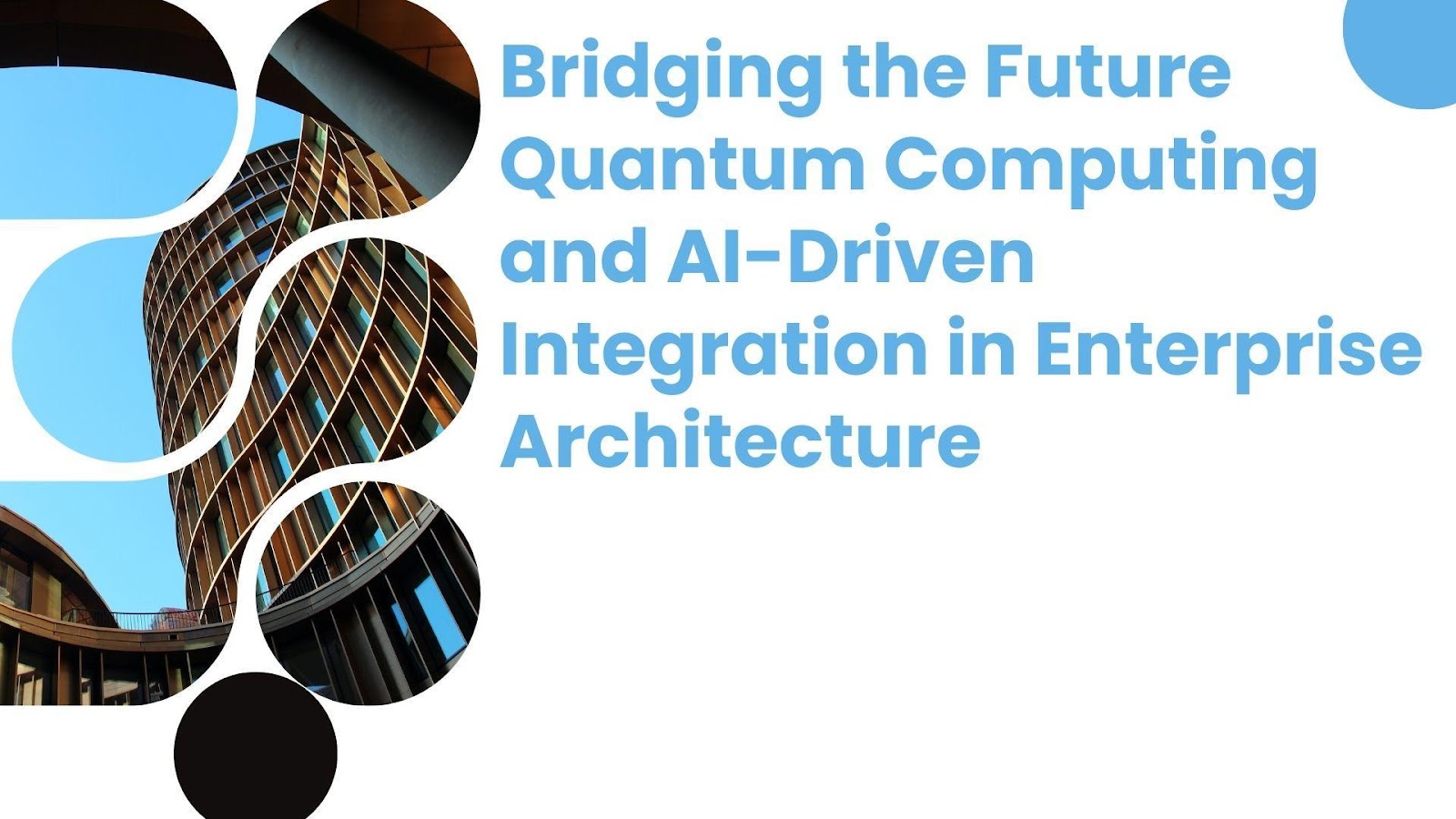The Next Evolution in Enterprise architectures are on the cusp of a transformative shift, driven by advancements in quantum computing and AI-driven integration platforms. Himanshu Nigam explores this convergence, detailing how these emerging technologies can address challenges in data processing, optimization, and real-time decision-making.
Quantum Computing: A New Era of Processing Power
Quantum computing’s revolutionary approach extends far beyond academic curiosity into practical enterprise applications. By harnessing quantum mechanical phenomena like quantum tunneling and quantum annealing, these systems can explore multiple solution paths simultaneously, dramatically reducing processing time for complex problems. Industries from pharmaceuticals to logistics are already exploring quantum advantages for molecular modeling and supply chain optimization. The quantum advantage becomes particularly evident in machine learning applications, where quantum neural networks promise enhanced pattern recognition capabilities essential for next-generation AI systems. As quantum hardware matures, organizations that strategically integrate quantum computing into their technology roadmaps will likely secure significant competitive advantages.
Optimization Acceleration in Complex Systems
One of the key advantages of quantum computing is its ability to accelerate optimization tasks. Traditional computing systems struggle with large-scale data processing, particularly in dynamic environments requiring real-time adjustments. Quantum algorithms, such as quantum annealing, offer promising solutions for resource allocation, scheduling, and logistics management, making enterprises more efficient and responsive.
The transformative potential of quantum computing extends to financial modeling, where it can rapidly analyze market fluctuations and optimize investment portfolios. Additionally, in manufacturing, quantum algorithms can streamline complex supply chains and production processes, minimizing waste and maximizing output.
Strengthening Security with Quantum Capabilities
While quantum computing poses challenges to existing cryptographic systems, it also offers new security solutions. Quantum encryption techniques, such as quantum key distribution (QKD), provide a level of security that is theoretically unbreakable, ensuring data integrity and privacy in enterprise applications. Organizations must prepare for a shift in cybersecurity strategies to leverage these advancements effectively.
The Hybrid Approach: Quantum-Classical Systems
The current state of quantum computing necessitates a hybrid approach, integrating classical and quantum computing systems. Quantum Processing Units (QPUs) handle complex computations, while traditional computing infrastructure manages everyday processing tasks. The seamless interaction between these two systems is essential for practical implementation, requiring the development of robust quantum-classical interfaces. This strategic integration maximizes computational efficiency while managing implementation costs effectively.
AI-Driven Platforms: The Orchestrators of the Future
AI-driven integration platforms are revolutionizing enterprise architecture by enabling autonomous system orchestration. These platforms leverage machine learning and self-learning algorithms to enhance decision-making, optimize workflows, and predict system inefficiencies before they arise. With AI’s ability to process vast amounts of data, enterprises can automate decision-making processes.
Self-Healing Systems: The Future of Resilient Architectures
The introduction of self-healing architectures marks a significant step forward in system resilience. AI-powered monitoring tools can detect anomalies, diagnose failures, and implement automated recovery processes without human intervention. This capability ensures uninterrupted business operations and minimizes downtime, making enterprise infrastructure more robust and adaptive.
Implementing Quantum-AI Integration
For organizations to successfully integrate quantum computing and AI-driven platforms, a structured implementation framework is required. Key considerations include:
- Quantum-ready infrastructure: Establishing systems capable of interfacing with quantum processors.
- AI integration layers: Developing AI-driven analytics and decision-making tools.
- Advanced monitoring systems: Ensuring performance tracking across both quantum and classical domains.
- Security frameworks: Addressing quantum-related cybersecurity risks.
- Skills development: Investing in workforce training for quantum and AI expertise.
Overcoming Challenges in Adoption
Despite its promise, the integration of quantum computing and AI comes with challenges. Technical complexities, high implementation costs, and the need for specialized expertise are among the primary hurdles. Organizations must approach adoption strategically, balancing investment in research and development with practical implementation roadmaps.
In conclusion,the convergence of quantum computing and AI will continue to shape the future of enterprise architecture. As technology matures, enterprises that proactively engage with these innovations will gain a competitive edge, enhancing their computational capabilities and operational efficiency,Himanshu Nigam concludes that organizations must begin preparing for this technological revolution by investing in infrastructure, security, and talent. The shift towards quantum-AI integration is inevitable, and those who embrace it early will lead the next generation of enterprise transformation.





























